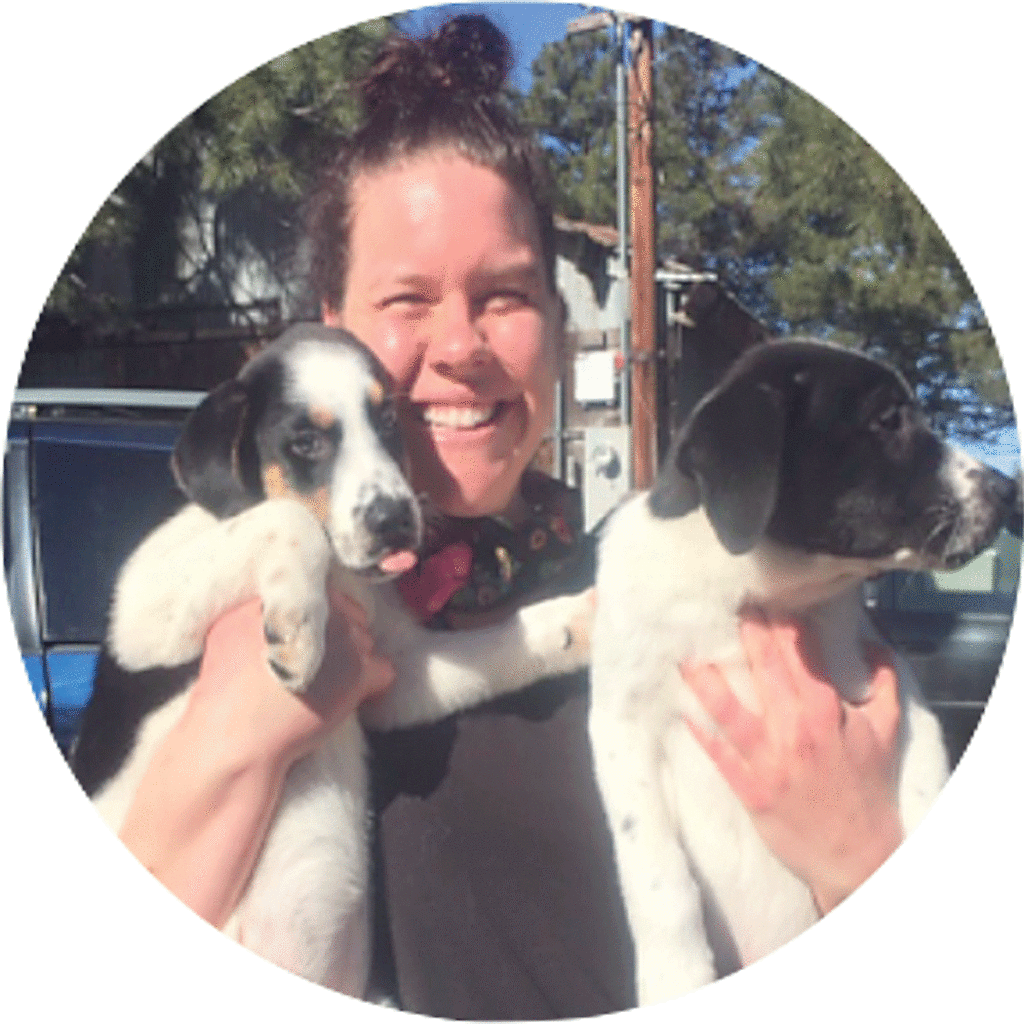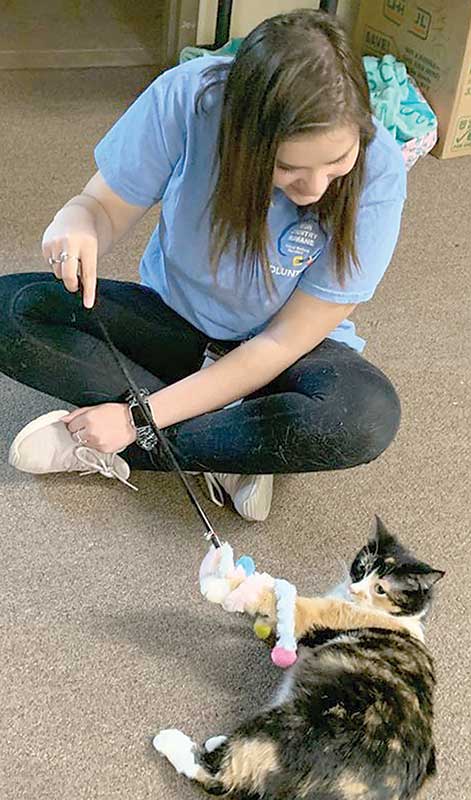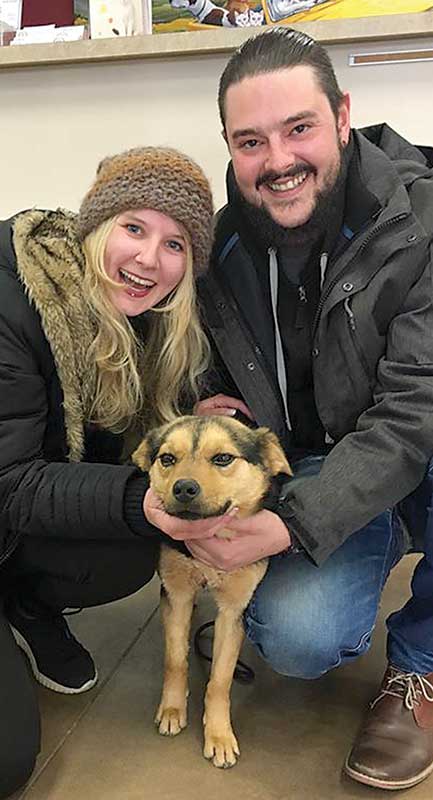By Jacqueline Vaughn
“It was the best of times, it was the worst of times…” Charles Dickens wrote in A Tale of Two Cities. He was referring to a transformative period in the lives of individuals and society, but the phrase could just as easily be applied to the changes that have occurred in the last year for Flagstaff’s High Country Humane.
When the open admission animal shelter held its grand opening on April 13, 2019, High Country Humane had only been open for three months after successfully negotiating a contract with the City of Flagstaff and Coconino County to take over the facility previously operated by Second Chance Center for Animals. Second Chance had closed its $2.1 million building in 2017 after financial difficulties and staffing challenges had made operations non-sustainable. The 20,000 square foot facility sat empty for more than a year and a half until Paw Placement of Northern Arizona was awarded a five year contract to provide shelter services previously provided by the Coconino Humane Association. One local official said that Paw Placement won the contract largely because the Coconino Humane Association’s facility had been in a state of disrepair for years, and Paw Placement offered a vision that would make better use of the newer facility.
The contract required High Country Humane to accept all stray and owner-surrendered animals, which rapidly began arriving when the shelter re-opened its doors on January 2, 2019. Under Arizona state law, all strays must be held for a minimum of 72 hours in order to let their owners reclaim them, but this requirement also ties up kennels. The facility now only accepts animals from within Coconino County, a change from the policies of Second Chance.

Personnel changes were just one challenge for the group. Steve Conrad, who was hired as executive director despite having had no experience in the animal welfare field, left abruptly in Fall 2019, and Treasurer Liz Bohlke took on responsibilities for managing the organization as Interim Executive Director. Diane Jarvis, who had founded Paw Placement and served as president of that group and High Country Humane, stepped down after 13 years, staying on as a member of the board of directors and chair of the outreach committee. Stacy DaBolt, Director of Animal Care and Operations, also left in 2019, replaced by Liz Olson, who had served in a similar position with the Humane Society of Sedona.
Dr. Carly Bennett joined High Country Humane in April 2019 as the shelter’s full-time veterinarian, although she was not new to the facility. As an undergraduate at Northern Arizona University, she had volunteered at Second Chance, and her enthusiasm for working in animal welfare led her to attend veterinary school in Dublin, Ireland. She then returned to Flagstaff and worked at Kaibab Veterinary Clinic for six years. She considers working at High Country Humane her “dream job” and something she had always hoped to do–work with shelter animals.

The hiring of Bennett and an accompanying growth in staff of veterinary technicians is, for many, one of the major accomplishments of the organization, and a goal that previous leaders of the facility had hoped for but never completed.
In April, High Country became the only shelter in northern Arizona with a full-time veterinarian and veterinary staff. Having a vet on staff allows High Country to operate an income-based, low cost spay and neuter clinic, to offer vaccination clinics and microchips, to sell animal licenses, and in some cases, to provide assistance to low income owners who needed help paying for their pet’s medical and dental procedures.
In addition, the first year of full operation has seen the growth or development of programs including a pet food bank for low-income pet owners that distributed 2,300 pounds of food to pet owners in 2019, regular adoption events at PetSmart and at other venues; programs for low income seniors, an increase in the number of fosters, including local students, and a working cats program that is just starting. That program, led by Pam Tharp, a member of the board of directors, is recruiting volunteers and obtaining equipment for an extensive TNR (trap/neuter/return) program.
Bohlke notes that in its first year, High Country Humane took in 2,844 cats and dogs, along with other types of domestic animals. The total includes 394 animals surrendered by their owners. Of the total 1,742 were adopted into new homes and 663 pets were returned to their owners. Of the animals that entered the shelter, 562 had life-threatening illnesses or injuries that required immediate medical attention, including parvo. This often deadly disease led to an increase in the cost spent per animal, but all were treated and eventually adopted. The result is an impressive 95 percent live release rate.

There have been challenges, including some that are being addressed through the adoption of a strategic plan for 2020 and beyond, and the addition of two new board members. Bohlke, a Realtor with Linton Real Estate in Flagstaff and owner of Golden Years Concierge Services, says that like most non-profit organizations, the biggest challenge that High Country Humane faces is fundraising. The need for additional funding beyond what is provided through the city/county contract is ongoing, although the group was able to meet its goals for 2019 and received numerous grants.
Another challenge, she says, was that, initially, the group was not sure how a building that was designed for a limited number of animals would be affected by caring for the sheer number of strays and owner surrenders that the contract with the city and county requires. The facility has no outside kennels to handle overflow, and a limited number of insider kennels, so some animals are being housed in otherwise empty offices and other unused space.
Buckle also notes that they have adapted to the number of pets surrendered by their owners, along with strays, through a policy of “managed admissions” that allows them to deal with crowded kennels. Rather than turning animals away when the shelter is full, or when an owner says they are unable to pay the $35 surrender fee, staff members will ask the owner to wait a week and then to return with their animal. Another strategy, which she calls “essential” to their operations, has been the growth in the number of fosters –a total of 796 animals were fostered in the first year of operation. They also kept capacity numbers stable by transferring adoptable animals out to other shelters and rescues in Sedona and Phoenix, such as The Ark Cat Sanctuary in Parks and the Arizona Humane Society in Phoenix.

Still, there are rough spots that need to be addressed to bring the organization up to speed, both internally and externally. The group’s website remains out of date, with former executive director Conrad still featured on one of the videos under News and Events, and some sections, such as Statistics and Financials, empty of data. Conrad cited the harsh winter storms of February 2019 as a factor that limited the facility’s ability to be fully operational for its grand opening. Some have complained about the managed admissions policy, saying that they have been turned away from a shelter that was supposed to take in all dogs and cats from Coconino County regardless of capacity limits. Boklke admits that she is glad that there is more than one shelter in Flagstaff, since many residents, out of habit, still take their animals to Coconino Humane. In February, the now-private shelter was the beneficiary of a generous Flagstaff resident’s donation of $18,380 to pay for every adoptable animal the facility had on site on that day—107 dogs and cats, to be exact.
She is especially excited about a new partnership that is being established with Coconino Community College, which is starting a new veterinary technician training program in Fall 2020. The two year program will include some classes that will be held at High Country Humane, and an internship program that will augment the facility’s staffing while providing real life instruction and training for students. In addition, former Paw Placement president Jarvis will head an outreach program that will include school programs and more public participation in shelter activities.
The anonymous Flagstaff donor had been inspired by a similar act of kindness by Kansas City Chiefs football player Derrick Nnadi after his team won the Super Bowl. The donation allowed Coconino Humane to clear out its kennels and cages, no matter how long it will take every one of the animals to be adopted. This also opened up more space for owners needing to surrender their pet who might otherwise have been turned away from High Country Humane.

The relationship between the two facilities has sometimes been strained, despite several efforts to create a region-wide alliance of local shelters and rescues. One rescue leader believes that Paw Placement was ill-equipped to handle the influx of animals High Country Humane received on opening day, and that many local residents prefer to adopt a new pet or surrender their animals to Coconino Humane’s Butler Avenue shelter rather than making the drive to East Flagstaff. Another said that the drama typical of the animal welfare world is no different in Flagstaff than it is elsewhere. Most agree, however, that having the new low-income clinic as part of the facility is a real bonus for residents in northern Arizona, and that local veterinarians have been very supportive of both groups’ efforts.
There is no doubt that hiring a new executive director this Spring—perhaps one with experience specific to animal welfare, a background in non-profit management, and with a commitment to Flagstaff as a community—will be key to High Country Humane’s future. Bohlke plans to return to the board once the leadership position is filled, and she is confident that the new program at Coconino Community College will contribute to their staffing, currently at 29 management and hourly employees.
The long-term goal of ensuring that every pet in the community is healthy, and “advocating for the well being of every animal” remains central to High Country Humane’s mission, no matter who is in charge.

